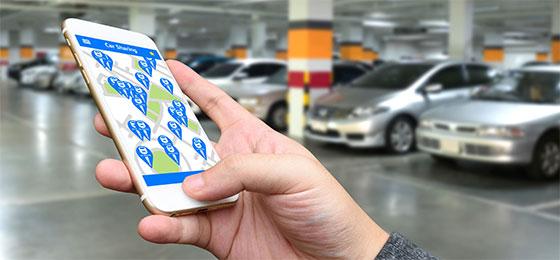Completed project: Sharing Economy: Hype or Promise?
Sharing economy can save energy. The NRP 71 project investigated to what extent and under which conditions a saving effect actually occurs.
"Collaborative consumption" (CC) can generate energy savings, but they are easily overestimated by neglecting potentially negative side effects. Potential savings can be identified and exploited with the help of appropriate knowledge-based measures at the context level as well as at the individual level.
The NRP 71 project headed up by Prof. Klaus Jonas and Dr Jörg Artho from the Department of Psychology of the University of Zurich analysed the energetic potential of CC, taking into account possible negative effects, such as rebound effects, examined factors that facilitate and hinder CC on both the supply and the demand side, evaluated a carpooling system and an accompanying package of marketing measures in a company in Switzerland and, finally, recommends practical measures to exploit the energy savings potential.
The case study on carpooling (leisure time trips) revealed a short-term energy saving potential of 490,000 GJ (gigajoule) per year in Switzerland for carpooling. This is based on average energy savings of 1,500 MJ (megajoule) per person and year. However, in the case of carpooling in a company in Switzerland (Swiss Re), the corresponding savings are 13,600 MJ of energy per person and year. The difference can be explained by the fact that commuting trips constitute a daily routine, whereas leisure time trips are only a few per year and person.
In contrast to carpooling, for Airbnb the overall energy balance shows an increase of +281 MJ per overnight stay.
At the context level, the main obstacles for the dissemination and establishment of sharing platforms are sociocultural, legal and political factors and – for carpooling – the very well organised public transportation system in Switzerland. At the individual level, the findings can be put into the following action guidelines: make it visible; make it better than the alternative; make it easy to use; make it ethical; make it trustworthy.

